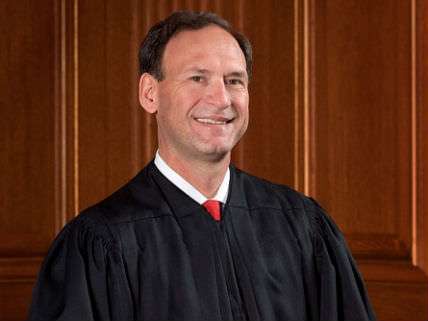Supreme Court Rules for Muslim Inmate, Says Prison Ban on Beards Violates Religious Freedom

In a 9-0 decision issued today, the U.S. Supreme Court struck down a prison policy formulated by the Arkansas Department of Corrections which prevented a Muslim inmate from growing a 1/2-inch beard in accordance with his religious views. According to Justice Samuel Alito's majority opinion in Holt v. Hobbs, the prison's no-beard rule ran afoul of the Religious Land Use and Institutionalized Persons Act of 2000, which says that "no government shall impose a substantial burden on the religious exercise" of prisoners residing in institutions that receive federal funding, unless the government can demonstrate that the burden furthers "a compelling government interest" and "is the least restrictive means" of furthering that interest. As Alito explained for the unanimous Court, the Arkansas Department of Corrections plainly flunked that federal test.
"We readily agree that the Department has a compelling interest in staunching the flow of contraband into and within its facilities, but the argument that this interest would be seriously compromised by allowing an inmate to grow a 1/2-inch beard is hard to take seriously," Alito observed. "An item of contraband would have to be very small indeed to be concealed by a 1/2-inch beard, and a prisoner seeking to hide an item in such a short beard would have to find a way to prevent the item from falling out. Since the Department does not demand that inmates have shaved heads or short crew cuts, it is hard to see why an inmate would seek to hide contraband in a 1/2-inch beard rather than in the longer hair on his head."
Alito made a similar point about contraband during the October 2014 oral argument in the case, where he asked the state's lawyer, "why can't the prison just give the inmate a comb…and say comb your beard, and if there's anything in there, if there's a SIM card in there…a tiny revolver, it'll fall out."
"I suppose that's a possible alternative," the lawyer was forced to concede, thereby dooming the prison's case.
The Supreme Court's opinion in Holt v. Hobbs is available here.


Show Comments (41)